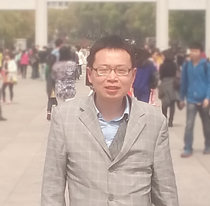
程勇,北京大学哲学系逻辑学专业哲学硕士(2008),新加坡国立大学数学系数理逻辑方向数学博士(2013),德国明斯特大学数学与计算机科学学院数理逻辑与基础研究研究所博士后(2013-2014)。武汉大学哲学学院副教授(自2015年6月起),优秀青年学术骨干引进人才,武汉大学珞珈青年学者(2016-2018)。研究领域:符号逻辑和分析哲学。本人已在国际一流符号逻辑核心SCI期刊(如The Journal of Symbolic Logic,Annals of Pure and Applied Logic,Mathematical Logic Quarterly, Archive of Mathematical Logic)上发表论文5篇。学术兼职:美国数学评论评论员;武汉大学欧美宗教文化研究所研究员。
Education and Employment
From September 2000 to July 2004
Bachelor in Management, Department of Management,
Major: Information Management and Information System,
South-Central University for Nationalities, China
From September 2004 to July 2008
Master in Philosophy, Department of Philosophy,
Major: Logic, Peking University, China
From August 2008 to March 2013
PhD in Mathematics, Department of Mathematics,
Major: Logic, National University of Singapore, Singapore
From January 2013 to January 2015
Postdoctoral, Institute for Mathematical Logic and Foundational Research, Department of Mathematics and Computer Science, University of Muenster, Germany
From June 2015 to Present, Associate Professor, School of Philosophy, Wuhan University, China
Academic Interests
Symbolic Logic and Analytical Philosophy
Papers in International Journals
Harrington's principle in higer order arithmetic, Yong Cheng and Ralf Schindler, The Journal of Symbolic Logic / Volume 80 / Issue 02 / June 2015, pp 477-489,SCI
Forcing a setmodel of Z_3 + Harrington’s Principle, Yong Cheng, Math.Log. Quart. 61, No. 4-5, 274-287 (2015), SCI
The strong reflecting property and Harrington’s Principle, Yong Cheng,Math. Log. Quart. 61, No. 4-5, 329-340 (2015), SCI
Large cardinals need not be large in HOD, Yong Cheng, Sy-David Friedman and Joel David Hamkins, Annals of Pure and Applied Logic, Volume 166, Issue 11, November 2015, Pages 1186-1198, SCI
Indestructibility properties of remarkable cardinals, Yong Cheng and Victoria Gitman, Arch. Math. Logic (2015) 54:961-984, SCI
Award Silver Medal of the 2014 Kurt Gödel Research Prize Fellowships Competition, Offered by The Kurt Gödel Society in Austria, August 2014.
Teaching Introduction to Logic, Symbolic Logic, First Order Logic